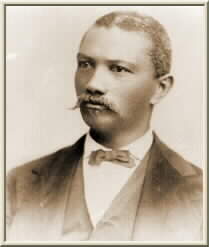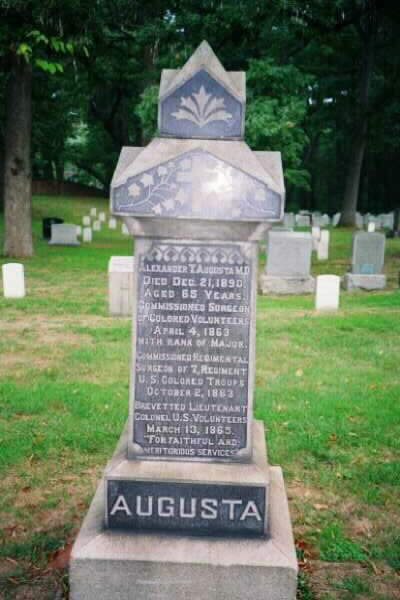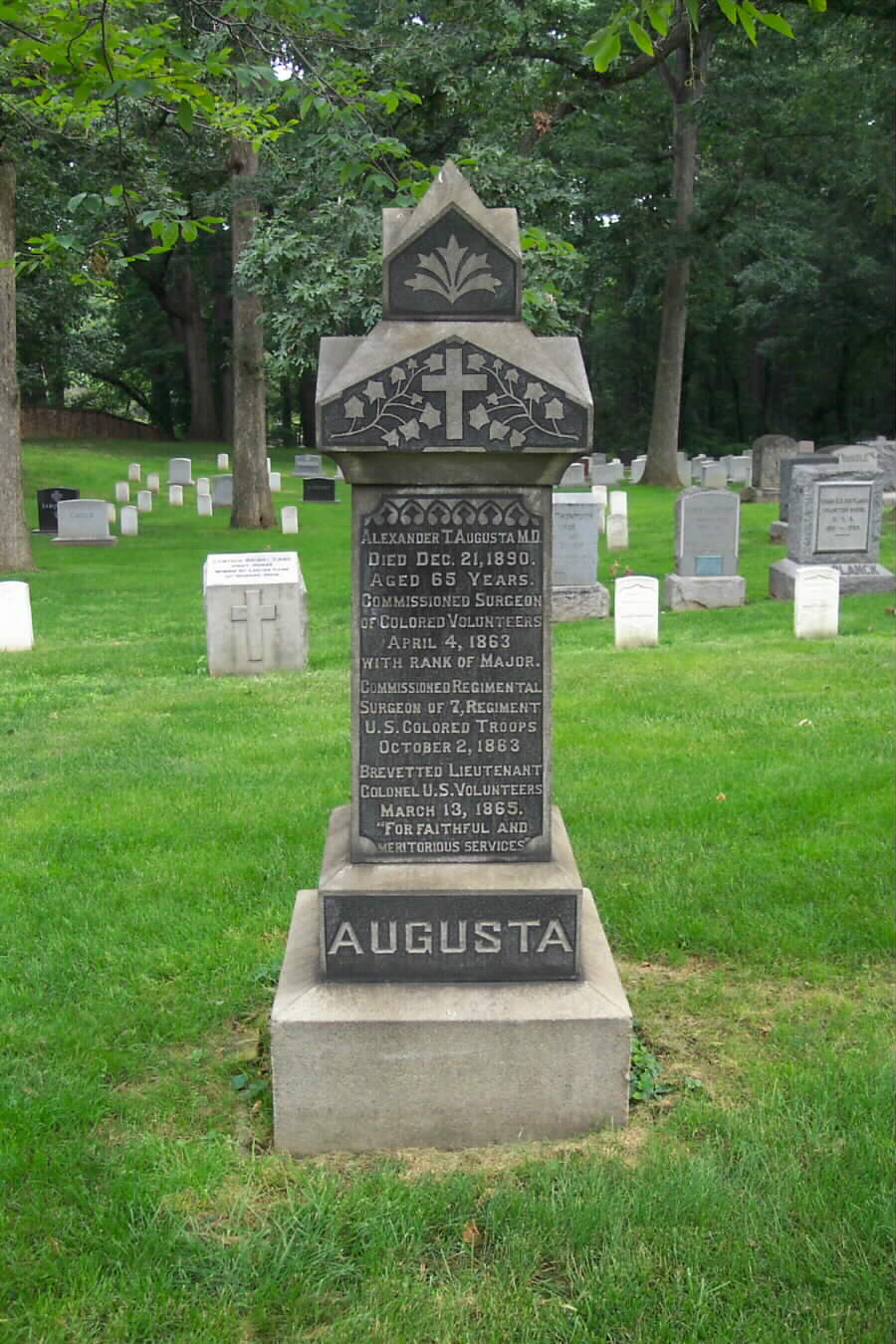
Surgeon of the 7th U.S. Colored Troops during the Civil War, he was the first black Major in the United States Army. He died on December 2, 1890 at the age of 65 and was buried in Section 1 of Arlington National Cemetery.
Commissioned regimental surgeon of the 7th Regiment of U.S. Colored Troops, October 2, 1863. Brevet Lieutenant Colonel of Volunteers, March 13, 1865, for faithful and meritorious services. Mustered out October 13, 1866.”
Alexander T. Augusta (1825-1890). Born in Norfolk, Virginia, and educated in Baltimore, Philadelphia, California, and Canada, he eventually received a medical degree from Trinity Medical College in Toronto. While practicing his profession in Washington DC, he was appointed surgeon of the Seventh U.S. Colored Troops,
which was part of the expedition to Beaufort, South Carolina. Later he was in charge of an army hospital in Savannah, Georgia. At the end of the war he was breveted a lieutenant colonel for meritorious and faithful service, one of the few blacks to achieve field grade rank in the Civil War. He later practiced medicine in Washington D.C. and served on the faculty of Howard University Department of Medicine. He is buried in Arlington National Cemetery.
Major Alexander T. Augusta was both the first black surgeon in the Union Army and the first black officer-rank soldier buried at Arlington. Despite his rank, he was only paid black-enlisted wages for most of his duty.
Augusta’s grave, set apart from the rows of white headstones, identifies him as “the commissioned surgeon of colored volunteers.”
During 1868-1876, Dr. Augusta taught in the Medical Department. His subject areas were “Practical Anatomy,” “Descriptive and Surgical Anatomy,” and “Descriptive Microscopial and Surgical Anatomy.” Professor Augusta was also a “Clinical Lecturer on Diseases of the Skin.” Dr. Augusta was one of the University’s earliest African American faculty member.
Michael Robert Patterson was born in Arlington and is the son of a former officer of the US Army. So it was no wonder that sooner or later his interests drew him to American history and especially to American military history. Many of his articles can be found on renowned portals like the New York Times, Washingtonpost or Wikipedia.
Reviewed by: Michael Howard


